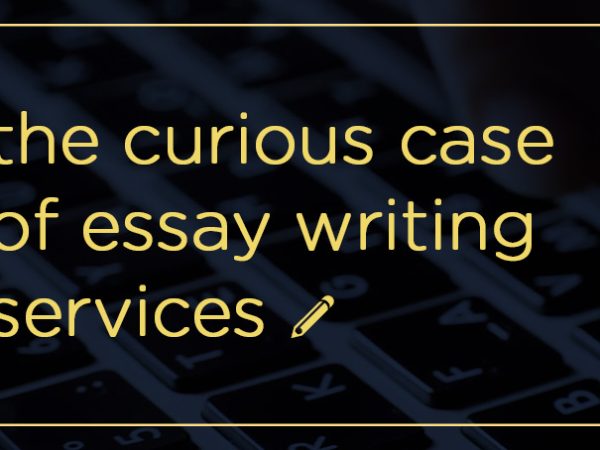The Applicant Series showcases works done by hopeful writers who have applied with inkmypapers over the years. The results and comments will be provided first, followed by the actual essay/report written by the applicant
Applicant’s Results: Passed
Title: The State has a monopoly over the use of coercion. Discuss preceding statement and compare the concepts of ‘security’ and ‘power’ of a State.
Comments: This is written by one of our best applicants (who also become one of our best writers) to apply at inkmypapers. Even though the topic is very complicated and the writer has no background in it, she did an admirable job in answering the question.
You can see that there are still parts the writer can improve on, particularly in her structure, but as someone who hasn’t received the training from us yet, she did a good job in deconstructing the requirements down.
The word ‘state’ can mean various things in different contexts, but looking through the lens of political science and sociology, the state is defined largely as a political association, established and given its power by society — a group of people who have agreed to implement, enforce, and subject themselves to a set of rules, customs, and laws. In his lecture ‘A Definition of the State’, Chandran Kukathas (2008) posited that the state is a corporate entity distinguished from other such entities by virtue of its being the highest corporate body within an attached physical territory. This means to say that though there may be other political associations within a given territory, the state wields supreme authority over the individuals residing within it, with the ability to enact laws, control its populace, and settle disputes and issues.
The state exists, functions, and is given this authority by its people for the common welfare and interest of its constituents. It does this by, for instance, creating and upholding regulations benefitting the common good, repelling foreign invasion, conserving economic resource, and providing opportunities to develop human capacity. The state, then, emerged out of a social contract between the people and their governing leaders, with the people according power and authority to the State in exchange for security, stability, and order.
State power is one of the most important factors in how the state functions. State power enables the state to effectively fulfill its function in society, which is to establish state security. State security can mean two things: first, the manner in which the state secures the well being of its people, and second, the manner in which the state safeguards its power and protects itself. The latter is an essential aspect of any state, for of course any organization would seek ways to protect itself. The state accomplishes this by eradicating any threat and rival (Arika n.d.). The former definition of state security – the well being of its people – is the ultimate function of the state.
Put simply, the state has a duty to ascertain the security of its people, encompassing economic security, food security, and protection against crime, among others. It does this by harnessing the power accorded to it by the same people it governs. Without adequate power, it would be difficult for the state to provide and offer the security that its constituents demand and need. The state accomplishes this by wielding its power through the use of coercion and physical force.
In his lecture ‘Politics as a Vocation’, Max Weber (1919) describes the state as a group of people who has the sole legitimate right to employ physical force within a territory. The keyword in Max Weber’s definition is legitimate. This word implies that while there may be other sources of physical force within a territory – such as criminal organizations, terrorists, insurgents, or other military forces – only the state can claim to use force legitimately for any reason (Munro 2013). Furthermore, only the state can dispense the right to use force, without losing any of its authority. For instance, the state can grant another actor –such as a military group — the right to use force should circumstance call for it, and withhold the same right from another organization, making it criminally liable should it enact any physical force. This upholds the State as the sole source of physical force, and allows it the power to not just impose but also control and limit force or violence.
This same exclusive right to employ and dispense physical force grants the state a monopoly on the use of coercion. Coercion is defined as the ability to persuade an individual to do something through the use of force or threat. Incidentally, power can be defined in a similar way: according to Ronald Dahl (1957), power is the ability to make an individual do what he would otherwise not do. This power that the state employs is, as John Rawls claims, always coercive, as it is supported by sanctions and the threat of force to uphold its laws (1996, listed in Morris 2012). As only the state has the legitimate right to use physical force, it stands to reason that in the event that there is, for instance, an individual not acting in accordance to the established law, only the state has the authority to coerce this same individual to comply hence the monopoly on coercion.
One way that the state is able to coerce its populace to compliance is through the constitution of laws and regulations. By exercising this power, the state easily regulates human interaction and effectively controls, manipulates, and coerces its people into behaving in ways outlined by the state. While this can be seen as necessary in order to maintain order and stability, it is not without its drawbacks: the state may just as easily overstep its boundaries and create laws that would be beneficial to a select group of people, giving them an advantage to the detriment of other groups of people (Arika n.d.).
Another way that the state enforces its monopoly on coercion is through the establishment of structures such as the state police and military forces. Again, authorized by state power, these structures enforce security, protect the people, and ensure that they comply with the regulations outlined by the state. Just as it is stated above, there is a danger that these structures would overstep their bounds, leaving the people within the state with a need to protect themselves from the state (Arika n.d.). Further, coercing or forcing an individual to act a certain way may be seen as intrinsically immoral and in violation of individuals’ rights, as proposed by Robert Nozick (1974, listed in Morris 2012). His argument was reinforced by Thomas Nagel (1991, listed in Morris 2012), who postulated that by coercing an individual to act in a manner that he cannot give reason to, the state treats the individual as a means to an end – even if that manner or that end is viewed by the state as beneficial for him and for the community.
In conclusion, it can be seen that the state is by the people and for the people, and as such, it is necessary to employ methods to ensure that the state functions as it should. While the state’s monopoly on coercion can have its disadvantages, it cannot be denied that the alternative to this coercion is anarchy, and anarchy would simply mean that the state has failed to do its duty to establish security and order within its populace. The state, imbued with power and the exclusive ability to coerce guarantees the state’s and its people’s security, longevity and continuity.
0 Comments
Leave a reply
You must be logged in to post a comment.



